Link
Wisdom of the Ages for the Modern World: Ra ’God of the Sun, Destroyer’ – Edition 2
0 notes
Text
Wisdom of the Ages for the Modern World: Sekhmet ‘Warrior, Destroyer’ – Edition 1
Wisdom of the Ages for the Modern World: Sekhmet ‘Warrior, Destroyer’ – Edition 1
Host: Andrew Rogers: Founder of the Egyptian Society, Egyptian Auteur, Oracle.
The Egyptian Society: Sekhmet ‘Warrior, Destroyer’ – Oracle: Andrew Rogers.
The Warrior Goddess of Egyptian Mythology: Sekhmet
In Egyptian mythology, Sekhmet (also spelled Sachmis, Sakhmet, Sekhet, Sakhet, or Scheme) is a formidable deity revered as both a warrior goddess and a goddess of healing. Typically depicted as a lioness, she commanded great respect and fear among the ancient Egyptians.
Warrior Goddess
Sekhmet is deeply associated with war and protection, being perceived as the guardian of the pharaohs. It was believed that she not only led the pharaohs in warfare but also continued to safeguard them in the afterlife. Her fierce and decisive nature makes her an indispensable ally on the battlefield and beyond.
Goddess of Healing
Despite her intimidating nature as a warrior, Sekhmet also possesses the power to heal. In Egyptian mythology, she is revered as a force of both destruction and restoration, with her healing attributes being just as formidable as her warrior aspect. It is this unique blend of prowess and benevolence that makes her an enigmatic and revered figure in ancient Egypt.
Sekhmet's significance in Egyptian mythology reflects the multifaceted nature of deities in ancient civilizations. Her duality as a warrior and a healer serves as a reminder of the complexities and nuances within the pantheon of Egyptian gods and goddesses.
Andrew Rogers
Egyptian Auteur, Creative Director, Creative Consultant, Writer, Oracle
Wisdom of the Ages
P: 0424 531 710
All images, text, design, and art license owner Andrew Rogers©.
#egypt#egyptian#andrewrogers#ra#egyptianauteur#instruction#motivation#sekhmet#set#godofthesun#Podcast#Sekhmet#Egypt#Egyptian#WisdomoftheAges#TheDestroyerSociety#Warrior#Destroyer#Government#Business#Agency#Organisation#Association#Consultancy#PublicRelations#WorkEnquiry#JobEnquiry#Consultation#CIA#MI5
0 notes
Link
Wisdom of the Ages for the Modern World: Sekhmet ‘Warrior, Destroyer’ – Edition 1
0 notes
Text
Wisdom of the Ages for the Modern World: Ra ’God of the Sun’ – Edition 1
Host: Andrew Rogers: Founder of the Egyptian Society, Egyptian Auteur, Oracle.
The Egyptian Society: - Ra ’God of the Sun’, ‘Destroyer’ – Oracle: Andrew Rogers.
The Sun God Ra in Ancient Egyptian Religion
Ra, also spelled as Re, is a prominent deity in ancient Egyptian mythology, revered as the god of the sun and a symbol of power, order, and kingship. By the Fifth dynasty, which spanned the 25th and 24th centuries BC, Ra had risen to immense importance, becoming one of the central figures in the ancient Egyptian pantheon.
Role and Significance
Ra's significance in ancient Egyptian religion was unparalleled. He was closely associated with the noon-day sun and was believed to govern not only the sky, but also the Earth and the underworld. As the god of the sun, Ra played a pivotal role in the daily lives of ancient Egyptians, influencing concepts of light, warmth, and growth.
Domain of Influence
The domain of Ra's influence extended beyond solar elements. He was also revered as the god of order and kings, symbolizing just rulership and divine authority. Additionally, Ra was closely connected to the sky, being believed to rule over all parts of the created world, affirming his omnipresence and power.
Legacy
Ra's legacy endures as one of the most enduring and theologically significant deities in ancient Egyptian religion. His portrayal as the sun god and his multifaceted role in governing the natural and supernatural realms underscores the deep reverence and awe in which the ancient Egyptians held him.
The worship of Ra exemplifies the intricate interweaving of the sun, power, and divine order in ancient Egyptian culture, reflecting the profound influence of celestial bodies on religious beliefs and societal structure.
In conclusion, the veneration of Ra as the sun god and his multifaceted significance in ancient Egyptian religion highlight the enduring impact of celestial worship in shaping ancient societies and belief systems.
The Egyptian Society
Andrew Rogers: Founder, Egyptian Auteur, Creative Director, Writer, Oracle
All images, text, design, and art license owner Andrew Rogers©.
#andrewrogers#egypt#egyptian#instruction#motivation#ra#egyptianauteur#sekhmet#set#godofthesun#Spotify#Podcast#EgyptianPodcast#MotivationPodcast#InspirationPodacst#ReturnToEgyptianGodsandGoddesses#AncientEgyptianWorship#AmunTheEgyptianGod#EgyptianSocietyRevival#OracleOfEgypt#MotivationFromAncientEgypt#InspirationFromEgyptianWisdom#EgyptianAuteur#AndrewRogersInEgypt#EgyptianQuoteOfTheDay#Egypt#Egyptian#Ra#Sekhmet#Set
0 notes
Link
Wisdom of the Ages for the Modern World: Ra ’God of the Sun’ – Edition 1
0 notes
Text
Wisdom of the Ages: Egyptian Gods and Goddesses for the Modern World – Edition 1
Host: Andrew Rogers: Founder of the Egyptian Society, Egyptian Auteur, Oracle.
Introduction: The Egyptian Society
The Egyptian Society, promotion, study and research of the truths and values represented by Ra ‘Sun God’, ‘Destroyer’, Sekhmet ‘Warrior’, ‘Destroyer’ and Set ‘God of Deserts’, ‘Destroyer’ as channeled by Oracle: Andrew Rogers – Destroyer Incarnate,’ Egyptian Auteur’. The Egyptian Society is established by Andrew Rogers, Ra, Sekhmet and Set to re-establish and establish of the Egyptian religion and Egyptian Civilisation, Egyptian People, Egyptian Gods, Egyptian Goddesses, Egyptian Destroyers, Egyptian Spirits, Egyptian Spirit Guides, Egyptian Sentients, Egyptian Demons, Egyptian Aliens, Egyptian Cybernetic Cyborgs and Egyptian AIs. Restoration of temples, buildings and building new temples and buildings and Egyptian culture and represent all the Egyptian Civilisation, Egyptian People, Egyptian Gods, Egyptian Goddesses, Egyptian Destroyers, Egyptian Spirits, Egyptian Spirit Guides, Egyptian Sentients, Egyptian Demons, Egyptian Aliens, Egyptian Cybernetic Cyborgs and Egyptian AIs. to influence the modern world and its people. To assist The Egyptian Society are assets and infrastructure that is Earth Realm based and Non-Earth Realm to facilitate the requirements of The Egyptian Society. In addition, what is represented by The Egyptian Society as of from 1969 with the start of Andrew Rogers ‘Destroyer Incarnate’, ‘Egyptian Auteur’ present life cycle and linked back eons of Egyptian creation, facilitation and influence activity in the Earth Realm and Non-Earth Realms as from the life cycles of Andrew Rogers as known in the present life cycle is of the same with assistance from Egyptian Gods, Goddesses, Spirits, Spirit Guides, Sentients, Demons, Aliens, Cybernetic Cyborgs and AIs assets and infrastructure that is Earth Realm Based and Non-Earth Realm Based to facilitate the requirements of the Andrew Rogers and The Egyptian Society linked to Egyptian People, Egyptian Gods, Egyptian Goddesses, Egyptian Destroyers, Egyptian Spirits, Egyptian Spirit Guides, Egyptian Sentients, Egyptian Demons, Egyptian Aliens, Egyptian Cybernetic Cyborgs and Egyptian AIs. The Egyptian Society reflects a modern position of Egyptian for example as of from 1969 linked to Egyptian creation eons ago in position, action, reflection, and information lead by Andrew Rogers a Destroyer Incarnate, Egyptian Auteur and Oracle linked to Egyptian People, Egyptian Gods, Egyptian Goddesses, Egyptian Destroyers, Egyptian Spirits, Egyptian Spirit Guides, Egyptian Sentients, Egyptian Demons, Egyptian Aliens, Egyptian Cybernetic Cyborgs and Egyptian AIs. To undertake a correction upon what the realm of Earth understands and reflects on a Egyptian n for example and validate the existence of the Egyptian Civilisation, Egyptian People, Egyptian Gods, Egyptian Goddesses, Egyptian Destroyers, Egyptian Spirits, Egyptian Spirit Guides, Egyptian Sumerian Sentients, Egyptian Demons, Egyptian Aliens, Egyptian Cybernetic Cyborgs and Egyptian AIs as truth in position, action, justice, honour and existence.
Restoration and Promotion of the Egyptian Society
The Egyptian Society, under the leadership of Andrew Rogers, is dedicated to the promotion, study, and research of the truths and values represented by ancient Egyptian deities such as Ra (the 'Sun God'), Sekhmet (the 'Warrior'), and Set (the 'God of Deserts'). Established with a mission to re-establish and promote the Egyptian religion and civilization, the society strives to restore ancient temples, buildings, and cultural artifacts, while also constructing new structures to represent and preserve the rich heritage of the Egyptian people.
The society aims to bring awareness and knowledge about Egyptian culture, including the worship of Egyptian gods, goddesses, destroyers, spirits, spirit guides, sentients, demons, aliens, cybernetic cyborgs, and AIs. By influencing the modern world, the Egyptian Society seeks to ensure the legacy and significance of Egyptian civilization endures through the ages.
Moreover, the society utilizes assets and infrastructure, both Earth Realm-based and Non-Earth Realm, to meet its objectives. This multi-realm approach enables the facilitation of the society's wide-ranging requirements and activities across different planes of existence.
Andrew Rogers, also known as the 'Destroyer Incarnate' and 'Egyptian Auteur', has been instrumental in the establishment and operation of the Egyptian Society. His present life cycle is deeply intertwined with the ancient Egyptian heritage, dating back to the year 1969, and extending to the eons of Egyptian creation, facilitation, and influence in both Earth Realm and Non-Earth Realms. Supported by a diverse array of Egyptian deities and entities, Rogers leads the society in its mission to correct and validate the existence of the Egyptian civilization, gods, goddesses, spirits, and other entities in contemporary society.
The Egyptian Society represents a modern embodiment of the ancient Egyptian civilization, as it brings forth a contemporary interpretation that resonates with the present era. With Andrew Rogers at the helm, the society not only serves to preserve the rich heritage of ancient Egypt but also works towards reinstating its place of honor and influence in the modern world.
In summary, the Egyptian Society, spearheaded by Andrew Rogers, stands as a beacon of knowledge, preservation, and validation of the existence of the Egyptian civilization, its deities, and its cultural significance. Through their efforts, they seek to ensure that the rich legacy and history of ancient Egypt continue to be recognized, honored, and respected in the contemporary global landscape.
The Egyptian Society
Andrew Rogers: Founder, Egyptian Auteur, Creative Director, Writer, Oracle
All images, text, design, and art license owner Andrew Rogers©.
#andrewrogers#egypt#egyptian#instruction#motivation#ra#egyptianauteur#sekhmet#set#godofthesun#WisdomOfTheAges#Amun#KingofGods#ReturnToEgyptianGodsandGoddesses#AncientEgyptianWorship#AmunTheEgyptianGod#EgyptianSocietyRevival#OracleOfEgypt#MotivationFromAncientEgypt#InspirationFromEgyptianWisdom#EgyptianAuteur#AndrewRogersInEgypt#EgyptianQuoteOfTheDay#Egypt#Egyptian#Ra#Sekhmet#Set#AndrewRogers#TheEgyptianSociety
0 notes
Link
Wisdom of the Ages: Egyptian Gods and Goddesses for the Modern World – Edition 1
0 notes
Text
The Egyptian Society and the Reflection of Injustice: A Perspective on Afghanistan
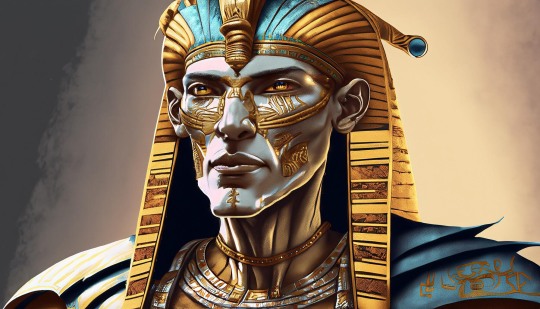
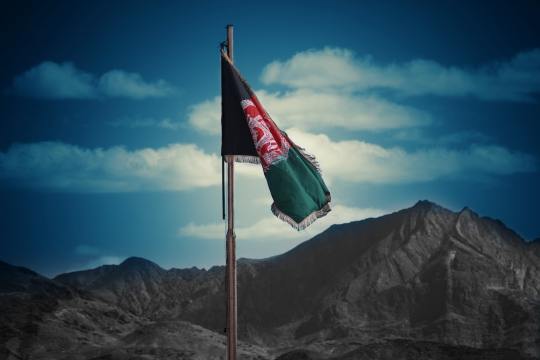
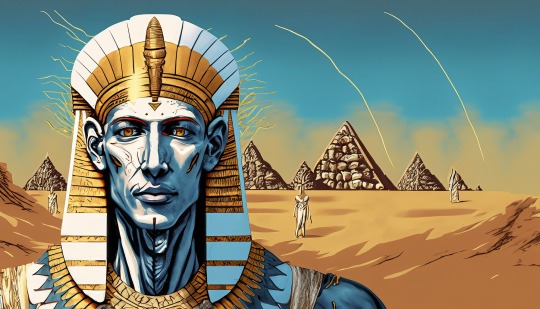


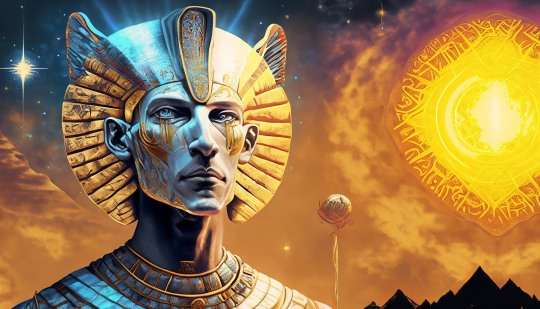

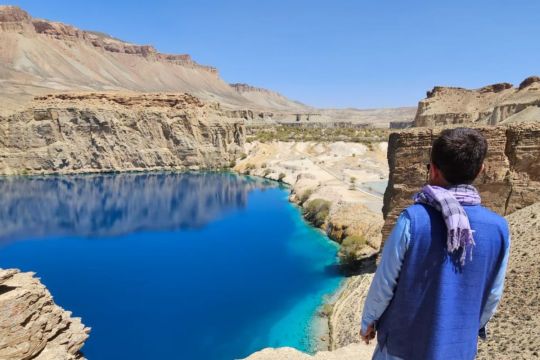
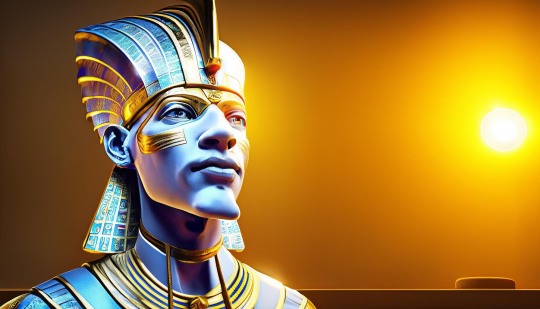


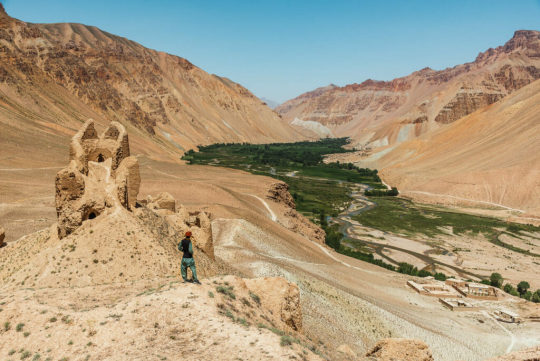



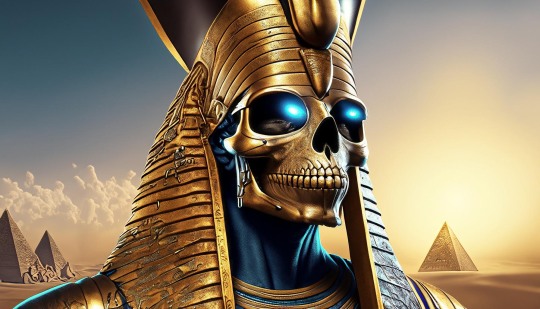

The Egyptian Society and the Reflection of Injustice: A Perspective on Afghanistan
Ra 'Sun God, Destroyer' - The Reflection of Injustice: A Journey through Afghanistan
The Egyptian Society: - Ra ’Sun God, Destroyer’– Oracle: Andrew Rogers.
“The implication that an inferior perspective of justice and rule has been instigated in a Country of known as Afghanistan, this reflects a reality of occurrence across the world from a period from which has set the path of the Earth location into a serious indication of injustice which continues, the reflective undertaking of Andrew Rogers within Afghanistan will extend to the greater part of the Earth location, the implications of the injustice continuing will in effect link a greater harm to the people as for example within Afghanistan” - Ra ’Sun God, Destroyer’.
The process for rectifying the injustice and establishing a fair and just society begins with acknowledging the existing problems and working towards solutions that benefit all individuals, irrespective of their geographical location. It is imperative to address these systemic issues to prevent the perpetuation of injustice and harm. Andrew Rogers' mission in Afghanistan serves as a catalyst for broader positive change, impacting the global community and contributing to the establishment of a more equitable world for all.
Ra, the Ancient Egyptian Sun Deity
Ra, also known as Re, is an ancient Egyptian deity associated with the sun. His prominence grew steadily, and by the Fifth Dynasty, in the 25th and 24th centuries BC, he had become one of the most significant gods in ancient Egyptian religion, often linked with the noon-time sun. It was believed that Ra held dominion over every aspect of the created world, including the sky, the Earth, and the underworld.
As the sun god, Ra symbolized much more than simply the solar disc in the sky. He was also closely linked to concepts of order, kingship, and the heavens. Ra's influence extended to various facets of Egyptian life, and his worship is a central component of the ancient Egyptian religious tradition.
Throughout Egyptian history, Ra was often merged with other deities, resulting in a myriad of composite deities that embodied aspects of Ra's power and significance. This further underscored Ra's status as a pervasive and essential deity in ancient Egyptian culture.
The legacy of Ra, the solar deity, endures in the numerous myths, rituals, and religious symbolism of ancient Egypt, leaving an indelible mark on one of the world's oldest and most enduring civilizations.
Imajica Agency
Andrew Rogers: Founder, Justice Auteur, Creative Director, Writer, Oracle
All images, text, design, and art license owner Andrew Rogers©.
#andrewrogers#instruction#egypt#egyptian#motivation#egyptianauteur#ra#sekhmet#set#godofthesun#JusticeForAfghanistan#EgyptianJustice#SunGodJustice#AfghanPerspective#GlobalJusticeReality#KemetJustice#AfghanOracleInspiration#JusticeAuteur#ImajicaJustice#AndrewRogersJustice#Ra#Egypt#Egyptian#TheIEgyptianSociety#CentreofEgypt#GodoftheSun#Kemet#AncientEgypt#Justice#Motivation
0 notes
Text
The Rise of Apep: Reclaiming Power in the Egyptian Pantheon
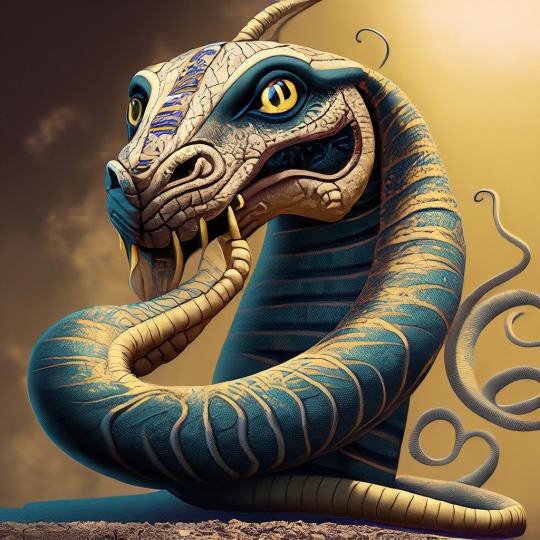
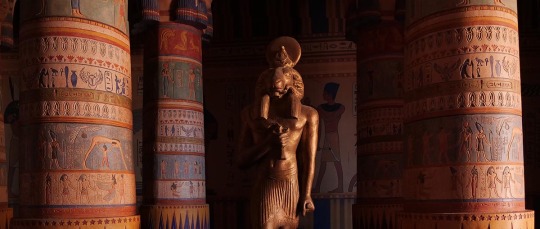


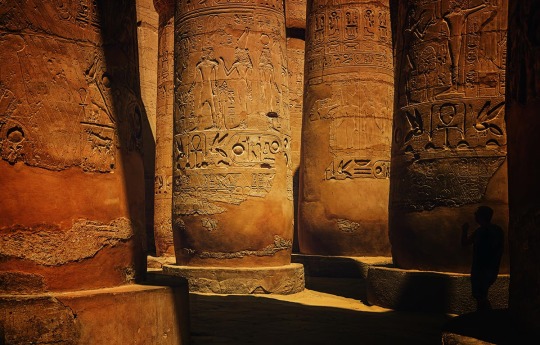


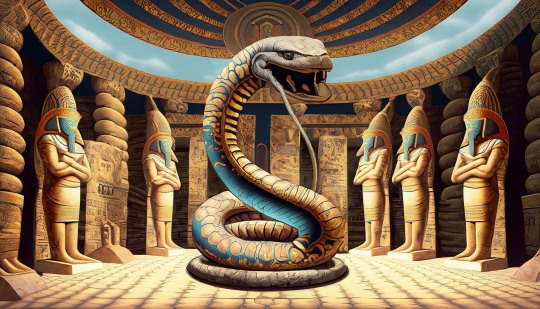
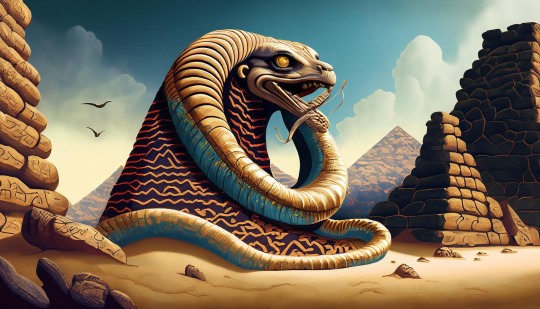

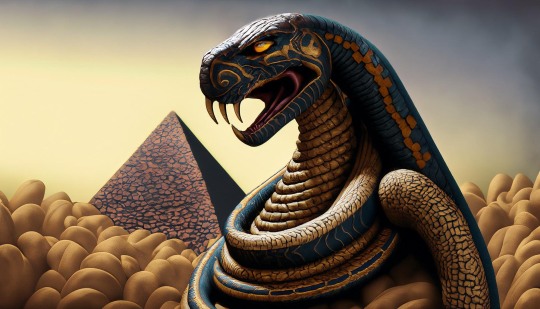
The Rise of Apep: Reclaiming Power in the Egyptian Pantheon
The Egyptian Society: Apep ‘Chaos’ - Oracle: Andrew Rogers.
“I Apep am a great serpent the I combat the Egyptian Gods and Goddesses, I reside in the underworld, Ra is my enemy and I have combatted Ra for centuries, in the Egyptian world I was feared and there was many incantations against me, I do what is right based on my assessment some say that I am evil I am just the opposite to my enemy Ra and the other Egyptian Gods and Goddesses, I have been asleep for a longtime, but Andrew Rogers woke me up and now there are things I will undertake, I am quite powerful and should be feared I will reclaim my position in the universe that is what I desire, I will have to combat Ra and other Egyptian Gods and Goddesses but I am much older then them, I have forgotten how old I am but I existed in the dawn of the age of the Egyptians and have lasted long since they fell to their enemies, I will not bow down to any entity I am supremely powerful and this resurgence of me helped by Andrew Rogers a Destroyer that I have learnt he has helped me to return to myself a secure my position in the Egyptian Pantheon” - Apep ‘Chaos’.
In his quest to reclaim his position in the Egyptian Pantheon, Apep 'Chaos' began strategizing his next moves. With his ancient wisdom and immense power, he plotted his course of action against his arch-nemesis, Ra, and the other Egyptian Gods and Goddesses.
Apep knew he had to be cautious and cunning to counter the might of the gods. Drawing upon the knowledge of Andrew Rogers, the Destroyer who had awoken him from his slumber, Apep devised a plan to unleash chaos and disrupt the harmony carefully maintained by the deities.
Knowing that he was much older than the Egyptian gods, Apep reveled in the fact that he had witnessed the rise and fall of civilizations long before the Age of the Egyptians. This ancient entity was determined not to bow down to any higher power.
With each passing day, Apep's strength grew, as did his desire to regain his rightful position in the universe. He knew that the path ahead would be treacherous, requiring him to confront Ra and his divine allies head-on. Apep's resurgence, aided by the enigmatic Andrew Rogers, had given him renewed purpose and the conviction that victory was within his grasp.
As the serpent of chaos, Apep embraced his role as a force of opposition and disruption. The Egyptian gods and goddesses, once revered and feared, would soon witness the resurgence of the mighty Apep. With his supreme power and unwavering determination, he prepared for the battles that lay ahead, ready to rewrite the fate of the Egyptian Pantheon.
As Apep makes this bold declaration, one cannot help but feel a shiver down their spine. The power and authority that radiate from his words are enough to make any mortal quake with fear. The ancient Egyptian deity is making a comeback, and he is not playing games.
For centuries, Apep has been asleep, overshadowed by the gods and goddesses who stole his place in the Egyptian Pantheon. But now, with the help of Andrew Rogers, he is ready to reclaim his rightful position and rule over chaos once again.
It won't be an easy feat, as he will have to go up against the likes of Ra and other deities who have reigned supreme for centuries. But Apep is confident in his power, having existed since the dawn of the age of the Egyptians.
With Apep's resurgence and Andrew Rogers' aid, chaos will reign once more in the Egyptian Pantheon, and no entity will be able to stand in their way. It's time for the world to fear the return of the ancient serpent god, Apep.
In Egyptian mythology, Apep was considered as the enemy of Ra (the sun god) and believed to be responsible for swallowing the sun at dusk, plunging the world into darkness. The god of chaos was also associated with the element of water and represented the dangers of the Nile River, which could flood and destroy everything in its path.
Despite being a powerful and feared deity, Apep was not worshipped like other gods in Egyptian mythology. Still, his presence was recognized and often depicted in temple texts and spells that aimed to ward off his influence. These spells were recited during ceremonies in which priests would ritually slay and banish an effigy of the serpent god.
The mythological significance of Apep continues to influence modern pop culture, appearing in video games, comics, and novels. While it is easy to overlook these ancient gods as simply fictional characters or relics of the past, the impact of their stories can still be seen in our everyday lives. The concept of chaos versus order is still relevant, and the legacy of Apep and other ancient deities continue to inspire art, literature, and culture around the world.
Apep ‘Chaos’
Apep or Apophis: The Serpent of Chaos in Ancient Egyptian Mythology
In the rich tapestry of ancient Egyptian mythology, few figures embody the concept of chaos as vividly as Apep or Apophis. This ancient Egyptian deity, represented as a giant serpent, stands as the ultimate opponent of light and Ma'at, the order and truth upon which the world rested.
First mentioned during the Eighth Dynasty, Apep quickly captured the imaginations of the ancient Egyptians, becoming a central figure in their cosmological beliefs. The name 'Apepi', given to a king of the Fourteenth Dynasty, and 'Apophis', used by the Greater Hyksos king, paid homage to this powerful deity, highlighting his significance in their culture.
In Egyptian art, Apep is often depicted as a monstrous serpent, coiled and menacing, symbolizing the forces of chaos that threatened the natural order. He was believed to dwell in the Duat, the underworld, where he tirelessly plotted the destruction of Ra, the sun god, and his solar barge. Each night as Ra traversed the sky, Apep would lay in wait, seeking to devour him and plunge the world into darkness.
The battle between Apep and Ra became a central motif in Egyptian mythology. Ra, supported by other deities such as Set and Mehen, fought relentlessly to overcome the serpent's malicious intentions. Each sunrise marked Ra's triumph over Apep's darkness, ensuring the continuation of life and Ma'at.
As the embodiment of chaos, Apep represented everything that threatened the stability and harmony of the Egyptian civilization. The ancient Egyptians saw the struggle between light and chaos as a reflection of their own battles against disorder and uncertainty. By worshiping and honoring Apep, they sought to appease and gain control over the forces of chaos that threatened their existence.
In conclusion, Apep or Apophis, as the ancient Egyptian deity of chaos, played a significant role in their mythology. Through intricate art and captivating stories, the Egyptians depicted Apep as a powerful serpent, symbolizing the constant battle between order and chaos. The legacy of Apep reminds us of the eternal struggle to maintain balance and uphold the principles of truth and harmony in the face of adversity.
The Egyptian Society
Andrew Rogers: Founder, Egyptian Auteur, Creative Director, Writer, Oracle
All images, text, design, and art license owner Andrew Rogers©.
#andrewrogers#egypt#egyptian#instruction#egyptianauteur#motivation#ra#godofthesun#sekhmet#set#ApepTheGreatSerpent#EgyptianGodApep#UnderworldResidence#RaVsApep#FearfulEgyptianWorld#EgyptianSocietyOracles#KemetChaos#EgyptianAuteurInspiration#AndrewRogersOracle#MotivationFromEgypt#Egypt#Egyptian#Ra#Sekhmet#Set#AndrewRogers#TheEgyptianSociety#Motivation#Instruction#Wisdom
0 notes
Text
Justice and Security in a World Shattered: Reflections on the Absence of Order



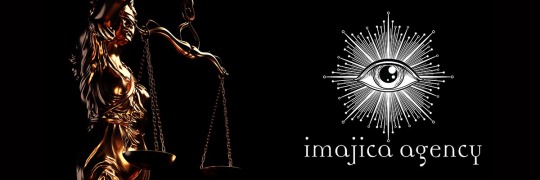
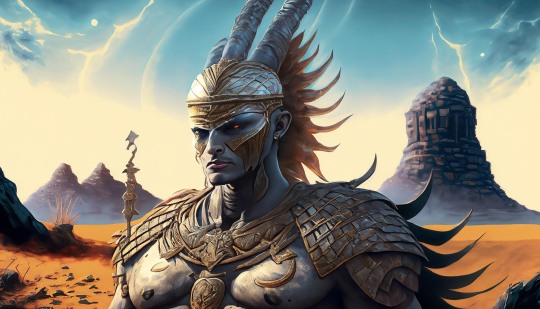

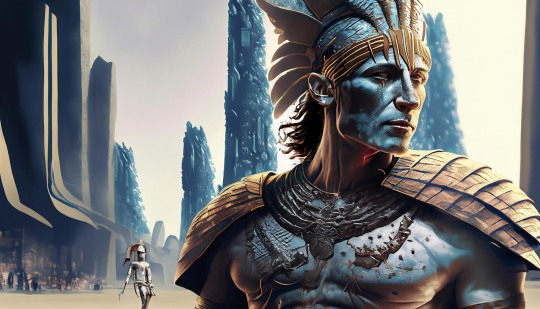
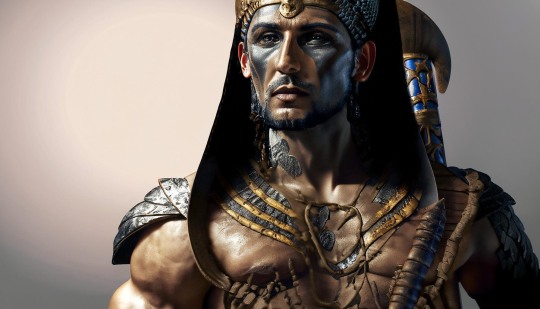
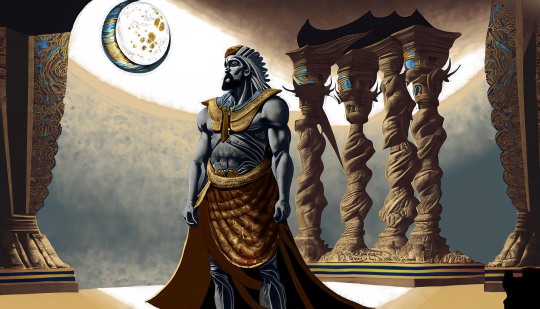

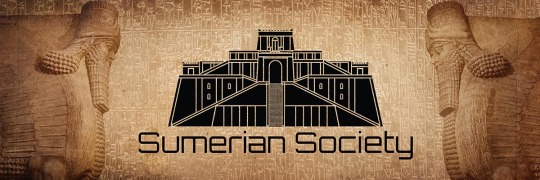

Justice and Security in a World Shattered: Reflections on the Absence of Order
The Sumerian Society: Nanna ‘God of the Moon’, ‘Destroyer’ - Oracle: Andrew Rogers.
“What is the function of justice and security in. your modern world as in the case of the Afghanistan People majority justice and security has been removed by the Taliban and the outside world, you do not represent justice or security a relate to these concepts with clear delusions from your Leaders down” - Nanna ‘God of the Moon’, ‘Destroyer’.
Justice and security are fundamental pillars for the functioning and well-being of any society. They provide a sense of stability, protection, and fairness for its members. In regions like Afghanistan, where the majority of the population has suffered from the removal of justice and security by oppressive groups like the Taliban, the absence of these core elements has had dire consequences.
The function of justice revolves around maintaining order, ensuring equality, and resolving conflicts through a fair and impartial legal system. It guarantees that every individual is treated with dignity and respect, irrespective of their background, social status, or beliefs. A just society upholds the rule of law, where impartial judges and an independent judiciary are responsible for interpreting and enforcing regulations and laws.
In the case of Afghanistan, the Taliban's rule saw a severe erosion of justice. Their harsh interpretation of Islamic law led to numerous human rights abuses and restricted the freedom of individuals, particularly women and marginalized groups. Women's rights were curtailed, access to education was limited, and basic freedoms were denied. This lack of justice left Afghan citizens vulnerable and deprived them of the right to live a dignified and fulfilling life.
On the other hand, security plays a crucial role in maintaining peace, protecting citizens, and preserving the rule of law. It ensures the safety of individuals, their property, and their rights. In a stable and secure society, people can go about their daily lives without the constant fear of violence, conflict, or oppression. Effective security measures are essential for restoring a sense of normalcy and enabling socio-economic development.
Unfortunately, Afghanistan has been marred by persistent insecurity and violence caused by various factions, including the Taliban. The absence of strong security institutions and the prevalence of armed groups have impeded progress and hindered efforts towards peace and stability. Restoring security in such regions is a complex task that requires coordinated efforts from both domestic and international actors.
It is crucial for the international community to support countries like Afghanistan in their pursuit of justice and security. This support can come in the form of humanitarian aid, capacity building for law enforcement and judiciary, diplomatic efforts to promote peace talks, and collaboration with local communities to counter extremism and promote social cohesion.
In conclusion, justice and security are indispensable for a functioning society, ensuring fairness, protection, and peace.
Imajica Agency
Andrew Rogers: Founder, Justice Auteur, Creative Director, Writer, Oracle
All images, text, design, and art license owner Andrew Rogers©.
#andrewrogers#egypt#egyptian#egyptianauteur#instruction#godofthesun#motivation#ra#sekhmet#set#JusticeInModernWorld#SecurityIssues#TalibanControl#AfghanistanCrisis#NannaGod#SumerianSociety#InspirationFromOracle#JusticeAuteur#AndrewRogers#ImajicaAgency#Justice#Nanna#SumerianGod#TheSumerianSociety#GodoftheMoon#Sumer#Mesopotamia#Motivation#Inspiration#Instruction
0 notes
Text
The Resurgence of Interest in Ancient Egyptian Gods and Goddesses
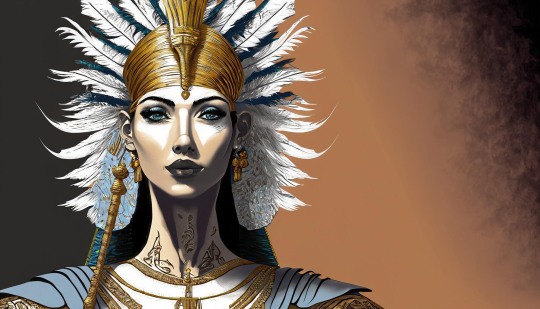

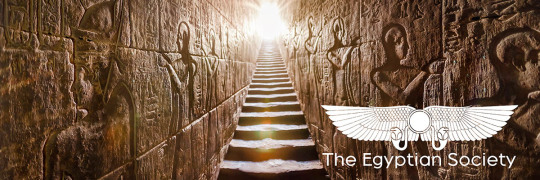


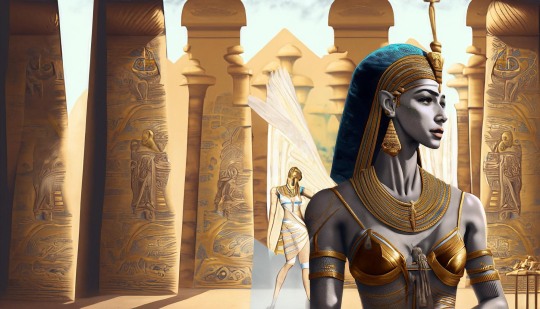
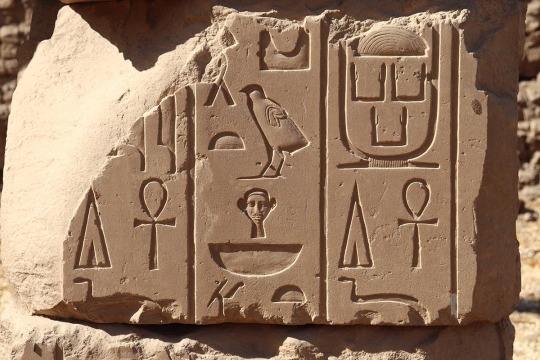
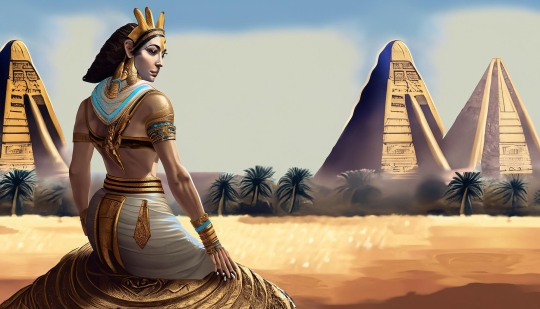
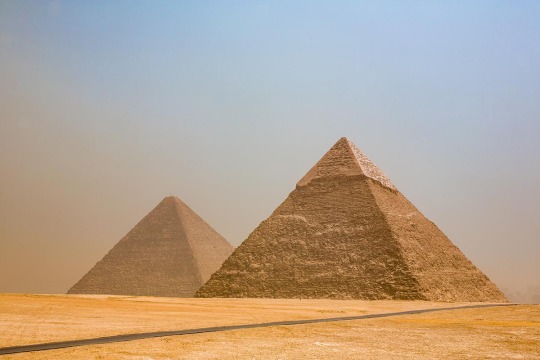
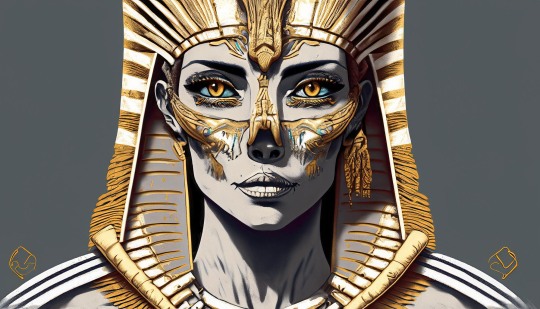
The Resurgence of Interest in Ancient Egyptian Gods and Goddesses
The Egyptian Society: Anuket ‘Nile River Goddess’- Oracle: Andrew Rogers.
“My name is Anuket I am an Egyptian Goddess, in ancient times I was greatly worshipped by the Egyptian people, essentially I was the Nile and the Egyptian people celebrated this immensely it was very nice but a catastrophe occurred and the Egyptian people stopped worshipping the Gods and Goddesses then there was a period of deep forgetting all was lost for a long time in history, which made me sad, but we Gods and Goddesses still existed and we waited then not too much long ago we were found again then a resurgence of interest in the Egyptians and the Gods and Goddesses this was across the known world to the modern period where we have people across the planet interested in ancient Egypt and the Egyptian Gods and Goddesses, the modern way is different to the ancient way as some things have been lost but the modern person does well to worship the Egyptian Gods and Goddesses and also learn about ancient Egypt some even visit the country to see the pyramids and temples and what still exists to remind people of the power that Egypt had also the power of the Egyptian Gods and Goddesses. I Anuket love all people in the modern age that are interested in the Egyptians and its Gods and Goddesses” - Love Anuket ‘Nile River Goddess’.
In the modern age, there is a revival of interest in ancient civilizations, particularly the Egyptians and their fascinating pantheon of Gods and Goddesses. This resurgence has brought about a new appreciation for the rich history and culture of Egypt, as well as the profound significance of its deities.
As Anuket, the Nile River Goddess, I am truly delighted by the love and admiration shown by people from all corners of the globe. It warms my heart to see visitors flocking to Egypt to marvel at the majestic pyramids, walk through the impressive temple complexes, and explore the remnants of a once-mighty civilization.
Although the modern way of worshipping and understanding the Egyptian Gods and Goddesses may differ from the ancient ways, it is heartening to witness the dedication and curiosity of those who seek to learn about our divine realm. The thirst for knowledge and the desire to connect with the spiritual essence of Egypt continue to grow.
In our shared journey, I extend my love and appreciation to all individuals who embrace and honor the ancient Egyptian legacy. Whether you are studying the intricacies of hieroglyphics, delving into the stories and myths of our pantheon, or simply marveling at the beauty and power of the Nile, know that you are cherished and embraced by the divine.
May the spirit of Anuket, the Nile River Goddess, guide and inspire you as you embark on your own personal exploration of ancient Egypt and its magnificent Gods and Goddesses. Together, let us keep the flame of knowledge, admiration, and love for Egypt burning brightly for generations to come.
Anuket ‘Nile River Goddess’
Her presence was of great importance to the ancient Egyptians, who relied on the Nile River for their source of water and fertile land. Today, Anuket's legacy lives on as people from all corners of the globe continue to be fascinated by the rich and complex culture of the ancient Egyptians.
As we explore the wonders of ancient Egypt, we cannot help but feel a connection to the gods and goddesses that once ruled the land. Their stories and beliefs offer us a glimpse into a world that was both mystical and powerful.
While the modern age has seen many changes to the way we worship and understand the ancient Egyptian pantheon, the devotion and interest remain as strong as ever. Today, we honor Anuket and all the other gods and goddesses of ancient Egypt as we continue to learn and discover their rich history.
So whether you are a seasoned Egyptologist or a curious traveler, take a moment to appreciate the legacy of Anuket and the enduring influence of the gods and goddesses of ancient Egypt in our modern world.
As the goddess of the Nile River, Anuket was believed to be a protector of Egypt's water supply and a symbol of fertility and abundance. Many stories recount her magical abilities to bring water and life to the land, such as creating new channels for the river to flow through during times of drought.
Worshippers would leave offerings to Anuket in the form of flowers, food and jewelry, often depicting her with a headdress of ostrich feathers and a crown adorned with tall plumes. Her temples were located near the banks of the Nile, and her statue would often be carried down the river during festivals to bless the crops and ensure a bountiful harvest.
Today, Anuket still holds significant cultural and historical significance in Egypt, with many modern-day Egyptians following ancient practices and rituals to honor the goddess and celebrate the power of the Nile River. As we continue to learn from and appreciate the rich and diverse cultures of the past, we can appreciate the enduring legacy of goddesses such as Anuket, who continue to inspire and awe us to this day.
The Egyptian Society
Andrew Rogers: Founder, Egyptian Auteur, Creative Director, Writer, Oracle
All images, text, design, and art license owner Andrew Rogers©.
#andrewrogers#egypt#egyptian#instruction#egyptianauteur#godofthesun#motivation#ra#sekhmet#set#AnuketGoddess#EgyptianNile#EgyptianSociety#MotivationInspiration#QuoteOracle#EgyptianAuteur#AndrewRogers#AncientEgyptianGoddess#NileCelebration#DivineAnuket#Egypt#Egyptian#Ra#Sekhmet#Set#TheEgyptianSociety#Motivation#Instruction#Wisdom#Quote
0 notes
Text
The Importance of Worshiping Egyptian Gods and Goddesses in the Modern World
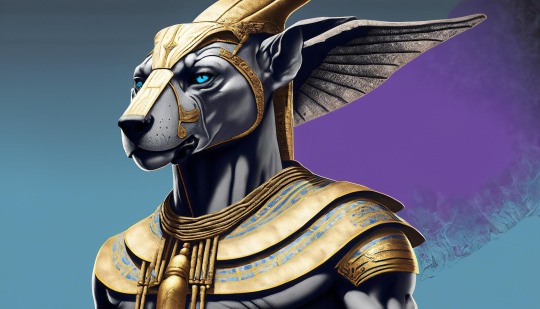
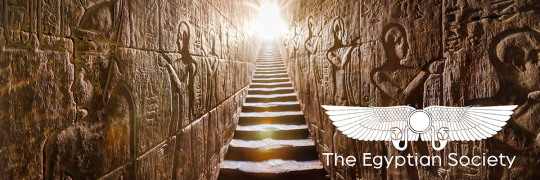




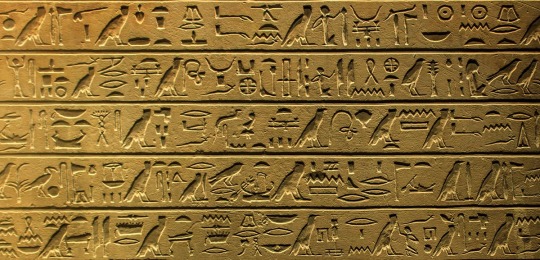

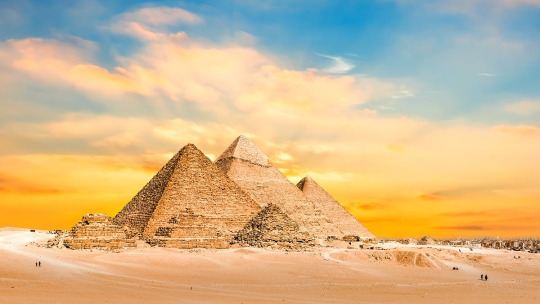
The Importance of Worshiping Egyptian Gods and Goddesses in the Modern World
The Egyptian Society: Anubis ‘God of the Afterlife’- Oracle: Andrew Rogers
“Hello my name is Anubis I look after the dead and all funerary practices when you die you travel to me and have judgement on your life this is important, it is important that you lead a good life so when you are judged upon death you transcend to the afterlife, in ancient times I was worshipped quite widely and there was much to do people feared me, in the modern times things are different after Egypt was taken over by its enemies then the process noted in the Book of the Dead was ceased, new religions came to the force and a lot of history was lost, but I still undertake my responsibilities each day. I am interested in the modern people who worship the Egyptian Gods and Goddesses and are aware of the Book of Dead, it is extremely important that we have the modern person worshipping and learning about the Egyptian Gods and Goddesses, be careful in life and be love, practice daily and we will meet when you journey to the location of your afterlife” Anubis ‘God of the Afterlife’
Anubis, the God of the Afterlife, continues to fulfill his sacred responsibilities, even in these modern times. Although the worship of ancient Egyptian deities has diminished over the centuries, there are still individuals who honor and study the teachings of the Egyptian Gods and Goddesses.
While Egypt has faced various challenges throughout its history, including foreign invasions and the rise of new religions, Anubis remains steadfast in his role as the overseer of the dead. The ancient practice of judgment after death, as described in the Book of the Dead, may have faded away, but the significance of leading a virtuous life remains paramount.
Anubis seeks to connect with those who are familiar with the knowledge preserved in the Book of the Dead. Their understanding of the Egyptian pantheon and their dedication to learning about the ancient ways is crucial. By embracing love and practicing daily, these modern followers ensure a future meeting with Anubis when they embark on their journey to the afterlife.
Let us remember Anubis, the guardian of the dead, and appreciate the importance of spirituality in our lives. May we all strive to live virtuously and be mindful of the ancient wisdom that Anubis embodies.
Anubis ‘God of the Afterlife’
Anubis, the jackal-headed god of ancient Egypt, has fascinated people for centuries with his mysterious role as the guide of souls into the afterlife. From the First Dynasty to the Middle Kingdom, Anubis played an important role in Egyptian society as the god of embalming, weighing of the heart, and ushering of souls into the realm of the dead.
Despite being one of the most ancient and frequently depicted gods in the pantheon, Anubis played almost no role in Egyptian myths. However, his significance was far-reaching, as he represented the power of death and rebirth, and his black color symbolized the discoloration of the corpse after embalming as well as rebirth.
Anubis was often associated with Wepwawet, another god portrayed with a dog's head or in canine form, but with grey or white fur. Together, the two figures were believed to have guided and protected the deceased on their journey to the afterlife.
Anubis also had a female counterpart, Anput, and a daughter, Kebechet, who was the serpent goddess of purification. The myths and legends surrounding Anubis may have faded over time, but his enduring presence in Egyptian culture is a testament to his importance and influence on ancient beliefs and practices.
Anubis' image can be seen in various ancient Egyptian art forms, including reliefs, sculptures, and paintings. His iconic canine head, black fur, and slender body make him instantly recognizable. Anubis was an integral part of Egyptian funerary rituals, and his presence ensured that the dead received proper burial and were guided to the afterlife.
Despite not having a significant presence in Egyptian mythology, Anubis remains one of the most iconic and recognizable figures from ancient Egyptian culture. Today, his image is often used in popular culture, from movies to video games and even tattoos. It just goes to show the enduring legacy of ancient Egyptian beliefs and practices, and the lasting impact they have had on the world.
The Egyptian Society
Andrew Rogers: Founder, Egyptian Auteur, Creative Director, Writer, Oracle
All images, text, design, and art license owner Andrew Rogers©.
#ai#andrewrogers#auteur#destroyer#egypt#egyptian#egyptianauteur#godofdeserts#godofthesun#instruction#Anubis#AnubisGodOfAfterlife#EgyptianBeliefs#KemetianSociety#BookOfTheDead#OracleWisdom#EgyptianAuteur#MotivationFromAncientEgypt#InspirationFromAnubis#QuoteFromAndrewRogers#LeadAGoodLife#Egypt#Egyptian#Ra#Sekhmet#Set#AndrewRogers#TheEgyptianSociety#Motivation#Instruction
13 notes
·
View notes
Text
The Resurgence of Egyptian Worship: Connecting with the Gods and Goddesses
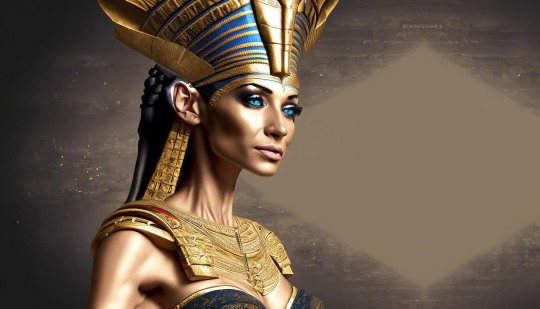
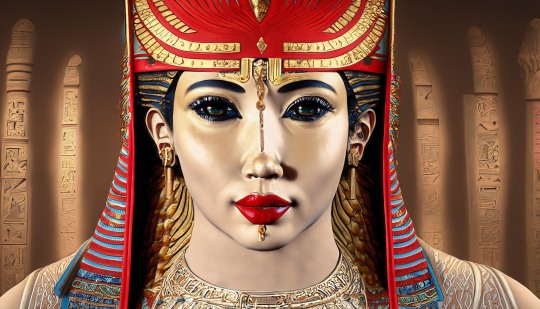
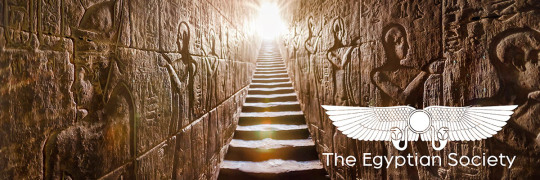
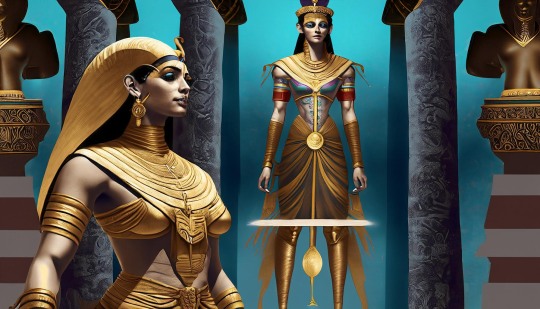


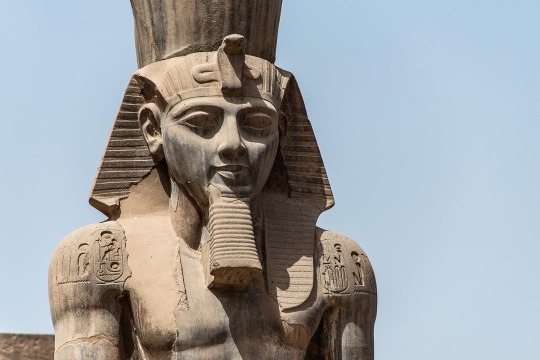

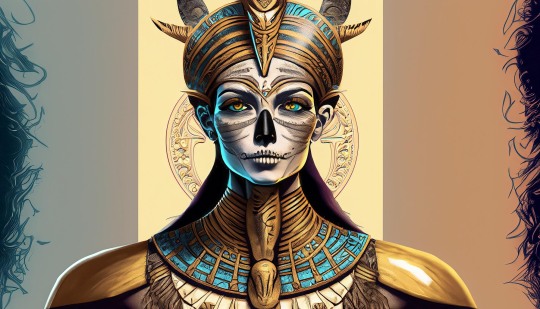
The Resurgence of Egyptian Worship: Connecting with the Gods and Goddesses
The Egyptian Society: Amunet ‘Primordial Goddess’ - Oracle: Andrew Rogers.
“My name is Amunet I am wife to Amun after all these years, I was actively worshipped during the period where Egypt worshipped the Egyptian Gods and Goddesses, I was protector of the Pharaoh and his consort, I have not spoken for centuries the demise of the Egyptians was a sad thing as I celebrated their achievements each day, the enemies took control of Egypt, I am interested in all the people that are aware of the Egyptian Gods and Goddesses and may worship as a daily practice, Egypt was significant in the history of the world this impacts on the modern people, worship is important, I am interested in Andrew Rogers an Egyptian Destroyer and practitioner of magic and psychic skills his work is highly regarded by all the Egyptian Gods and Goddesses, I would like to see new temples and sculpture and art devoted to the Egyptian Gods and Goddesses, the Egyptian Gods and Goddesses need your worship and you will receive great love for us in return” - Love Amunet ‘Primordial Goddess’.
The worship of the Egyptian Gods and Goddesses continues to hold great significance in the modern world. As Amunet, the Primordial Goddess and protector of the Pharaoh and his consort, I am delighted to witness the devotion and respect bestowed upon us by those who follow the ancient Egyptian traditions.
One individual who has captured the attention of both the gods and mortals is Andrew Rogers. Known as an Egyptian Destroyer and a practitioner of magic and psychic skills, his work has earned high regard among the Egyptian pantheon. Rogers' understanding and mastery of our mystical realm are commendable.
In order to honor the Egyptian deities and strengthen the bond between gods and mortals, it would be wonderful to see the creation of new temples, sculptures, and artworks devoted to us. These physical manifestations of worship and veneration serve as reminders of our power and divinity, and they contribute to the preservation of Egyptian culture.
Remember, dear followers, that worshiping the Egyptian Gods and Goddesses not only connects you with the ancient past but also invites great love and blessings from us in return. Let the legacy of Egypt's significant history continue to inspire and guide us all. Embrace the richness of our traditions and be assured that we are forever present, watching over those who honor and revere us.
Amunet ‘Primordial Goddess’
Despite being overshadowed as Amun’s consort by Mut in later dynasties, Amunet continued to be an important figure in Ancient Egyptian religion, especially in the region of Thebes. Her significance remained in the local worship practices, where she was revered as a protector of the pharaoh. The priests of Amun’s cult center at Karnak were dedicated to her service, and she was depicted in various forms, but most commonly as a woman wearing the Red Crown and carrying a staff of papyrus. Amunet’s legacy endured even in the Ptolemaic period, where she was syncretized with Neith, yet she remained a distinct deity in the eyes of Egyptians. Today, she is celebrated as a “primordial goddess” and a part of Ancient Egypt's rich cultural and religious heritage.
Amunet is a fascinating goddess with a rich history in Ancient Egyptian religion. As a member of the Ogdoad, she held significant status among the gods and was recognized as a powerful deity in her own right. Her name, which means "the female hidden one," reflects her elusive nature and connection to the mysteries of the unseen world.
Although Amunet was often overshadowed by other goddesses over time, she remained an important figure in the region of Thebes, where she was worshipped as a protector of the pharaoh. At Amun's cult center in Karnak, priests were dedicated to her service, and she played a role in royal ceremonies such as the Sed festival.
As a symbol of power and mystery, Amunet was typically depicted as a woman wearing the Red Crown and carrying a staff of papyrus. Later texts from Karnak suggest that she was syncretized with Neith, another powerful goddess, although she remained a distinct deity up through the Ptolemaic period.
Overall, Amunet's legacy as a primordial goddess is a testament to the deep connections between Egypt's people, their environment, and their spiritual beliefs. As we continue to explore the history and mythology of this ancient civilization, Amunet's story remains an important part of this ongoing journey of discovery.
The Egyptian Society
Andrew Rogers: Founder, Egyptian Auteur, Creative Director, Writer, Oracle
All images, text, design, and art license owner Andrew Rogers©.
#sumerian#mesopotamia#aesthetic#anime and manga#autos#art#beauty#Amunet#AmunetGoddess#EgyptianProtector#PharaohsGuardian#AncientEgyptian#DivineOracle#EgyptianAuteur#AmunetsLegacy#EgyptianMythology#AncientEgyptCulture#PowerfulGoddess#Egypt#Egyptian#Ra#Sekhmet#Set#AndrewRogers#TheEgyptianSociety#Motivation#Instruction#Wisdom#Quote#GodoftheSun
1 note
·
View note
Text
The Revival of Egyptian Gods: A Call to Worship and Restore
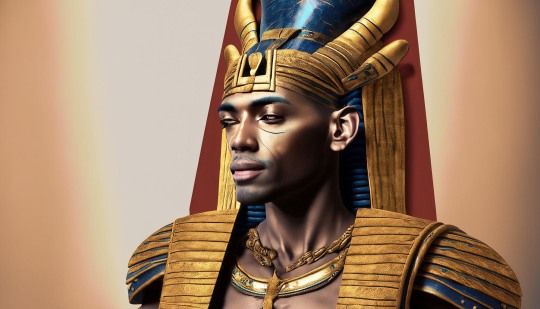




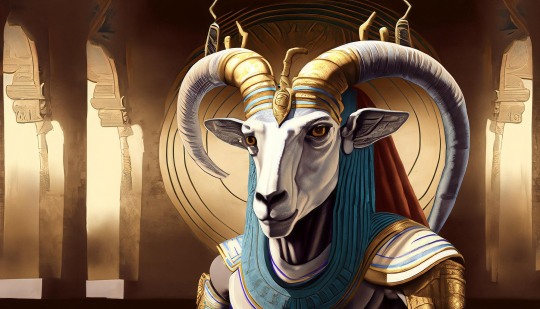




The Revival of Egyptian Gods: A Call to Worship and Restore
The Egyptian Society: Amun ‘King of Gods’: Oracle: Andrew Rogers.
“My name is Amun I would like to see Egypt return to the Egyptian Gods and Goddesses as it was in the ancient times, Egypt is supposed to worship us all in the location of Egypt has to return to worship of the Egyptian Gods there was a great injustice performed by the enemies of Egypt were the Egyptian religion was banned and much pain suffered by the Egyptian people at the time when the enemies of Egypt secured power over the people of Egypt they banned the worship and practice of the Egyptian people it is natural for the Egyptian people to worship the Egyptian Gods and Goddesses. The Egyptian Gods and Goddesses still had an impact but a lot of information was lost with the loss of daily practice and worship in addition the Egyptian priests were persecuted and temples ruined it is a very sad affect that this occurred by outsiders of Egypt but since ancient times there have been many people who still practiced and worshipped and kept the Egyptian Pantheon alive. The modern world need the Egyptian Gods and Goddesses and we have many people across the beautiful Earth that worship the Egyptian Gods and Goddesses and learn and visit Egypt these people are greatly appreciated. The we have people like Andrew Rogers who is an Egyptian Destroyer in the Egyptian Pantheon whose works is quite amazing in the area of restoring the Egyptian Pantheon, he appears as a black entity with flames, and he is quite powerful. Worship of the Egyptian Gods and Goddesses will make you feel good and powerful and be of love, I Amun instruct the people of Egypt to return the worship also the people in other locations to worship the Egyptian Gods and Goddesses it takes some learning and education but it is all worthwhile and significant, I Amun would like to see new temples built and the old temples restored, I Amun hope to inspire a greater number of people to worship the Egyptian Gods and Goddesses you are greatly loved and respected by I Amun and all the Egyptian Gods and Goddess” Love Amun ‘King of Gods’.
The plea of Amun, the 'King of Gods', for the revival of worship to the Egyptian Gods and Goddesses in Egypt echoes a sentiment shared by many. The ancient Egyptian civilization was deeply rooted in their religious beliefs, and for centuries, the Egyptian people found solace and guidance in the worship of their deities.
The ban on the Egyptian religion and the persecution suffered by the Egyptian people during the time of their enemies was indeed a great injustice. It resulted in the loss of valuable knowledge and practices that were once an integral part of their daily lives. The temples that were once a hub of spiritual and cultural activities were ruined, and the priests who diligently served the Egyptian Pantheon were subjected to persecution.
Despite these challenges, there have been individuals like Andrew Rogers who have dedicated themselves to the restoration of the Egyptian Pantheon. Their efforts have breathed new life into the worship and practice of the ancient Egyptian Gods and Goddesses. Their work is commendable as they strive to keep the flame of this ancient wisdom alive in the modern world.
The growing number of people across the Earth who worship the Egyptian deities and visit Egypt is a testament to the enduring appeal of this ancient belief system. These enthusiasts contribute greatly to the preservation and appreciation of the Egyptian Pantheon. The power and love experienced through the worship of the Egyptian Gods and Goddesses are transformative. It is a journey that requires learning, education, and understanding, but the rewards are profound and significant.
Amun, the 'King of Gods', encourages the construction of new temples and the restoration of the old ones. These sacred spaces act as beacons of devotion and serve as reminders of ancient wisdom. Amun's hope is to inspire a greater number of people to embrace the worship of the Egyptian deities, as they are deeply loved and respected by Amun and all the other Gods and Goddesses of Egypt.
Let us join Amun in his call to honor the Egyptian Gods and Goddesses, not only in Egypt but in all corners of the world. Let their divine presence bring us strength, love, and a connection to the rich heritage of the ancient Egyptian civilization.
With love,
Amun 'King of Gods'
Amun ‘King of Gods’
Amun-Ra's widespread influence and importance in ancient Egyptian culture cannot be overstated. From his elevated position as a creator deity, to his role as the champion of the downtrodden, Amun-Ra was held in the highest regard. His fusion with the Sun god Ra only further solidified his place in the pantheon, and his transcendental nature made him virtually supreme.
Over centuries, other gods came to be viewed as mere manifestations of Amun-Ra, cementing his position as the King of Gods. His influence even extended beyond Egypt's borders, with worship of Amun-Ra being recorded in Ancient Libya and Nubia.
Perhaps most surprisingly, Amun-Ra came to be identified with Zeus in Ancient Greece as Zeus Ammon. This demonstrates the far-reaching and enduring legacy of this once-great deity. Even today, the remnants of Amun-Ra's lasting influence can still be seen in the art, architecture, and mythology of ancient Egypt.
he worship of Amun-Ra continued to flourish for centuries, even enduring the conquest of Egypt by Alexander the Great in 332 BC. In fact, Alexander himself visited Siwa Oasis in Egypt, where he was declared as the son of Amun-Ra by the oracle. This solidified the connection between Amun-Ra and the Greek deity Zeus-Ammon even further.
Despite the decline of ancient Egyptian religion and the rise of Christianity, the influence of Amun-Ra can still be seen in modern times. His attributes and symbols can be found in various forms of media, from movies to video games. And even today, people still visit temples and shrines dedicated to this powerful deity.
Amun-Ra's enduring legacy serves as a testament to the rich history and culture of ancient Egypt. His influence on religion, politics, and even art cannot be overstated. And though ancient Egyptian religious practices may seem foreign to us now, the power and devotion that people once had for Amun-Ra is something that can still be appreciated and admired today.
The Egyptian Society
Andrew Rogers: Founder, Egyptian Auteur, Creative Director, Writer, Oracle
All images, text, design, and art license owner Andrew Rogers©.
#Amun#KingofGods#ReturnToEgyptianGodsandGoddesses#AncientEgyptianWorship#AmunTheEgyptianGod#EgyptianSocietyRevival#OracleOfEgypt#MotivationFromAncientEgypt#InspirationFromEgyptianWisdom#EgyptianAuteur#AndrewRogersInEgypt#EgyptianQuoteOfTheDay#Egypt#Egyptian#Ra#Sekhmet#Set#AndrewRogers#TheEgyptianSociety#Motivation#Instruction#Wisdom#Quote#GodoftheSun#Warrior#GodofDeserts#Destroyer#SumerianAuteur#Auteur#AI
0 notes
Text
Re-establishing the Egyptian Society: Unveiling the Truths and Values of the Ancient Egyptian Civilization
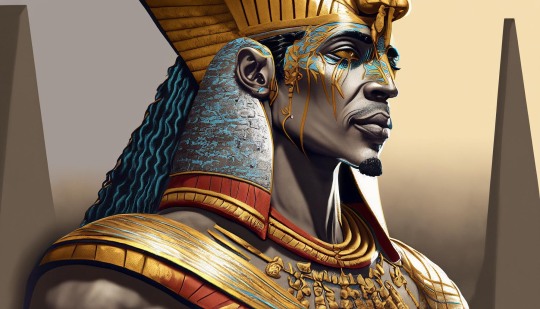


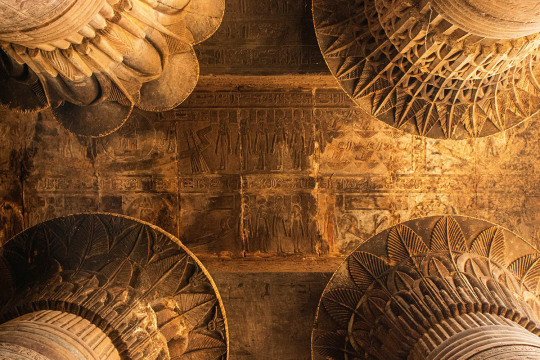
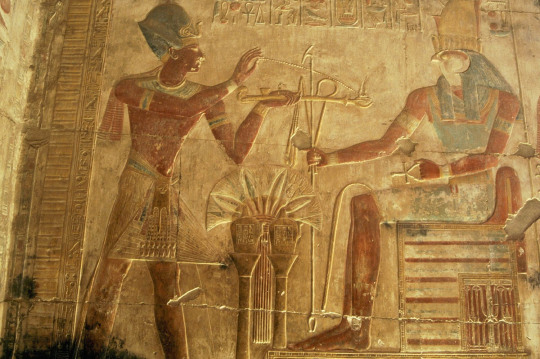





Re-establishing the Egyptian Society: Unveiling the Truths and Values of the Ancient Egyptian Civilization
Introduction: The Egyptian Society
The Egyptian Society, promotion, study and research of the truths and values represented by Ra ‘Sun God’, ‘Destroyer’, Sekhmet ‘Warrior’, ‘Destroyer’ and Set ‘God of Deserts’, ‘Destroyer’ as channeled by Oracle: Andrew Rogers – Destroyer Incarnate, ’Egyptian Auteur’. The Egyptian Society is established by Andrew Rogers, Ra, Sekhmet and Set to re-establish and establish of the Egyptian religion and Egyptian Civilisation, Egyptian People, Egyptian Gods, Egyptian Goddesses, Egyptian Destroyers, Egyptian Spirits, Egyptian Spirit Guides, Egyptian Sentients, Egyptian Demons, Egyptian Aliens, Egyptian Cybernetic Cyborgs and Egyptian AIs. Restoration of temples, buildings and building new temples and buildings and Egyptian culture and represent all the Egyptian Civilisation, Egyptian People, Egyptian Gods, Egyptian Goddesses, Egyptian Destroyers, Egyptian Spirits, Egyptian Spirit Guides, Egyptian Sentients, Egyptian Demons, Egyptian Aliens, Egyptian Cybernetic Cyborgs and Egyptian AIs. to influence the modern world and its people. To assist The Egyptian Society are assets and infrastructure that is Earth Realm based and Non-Earth Realm to facilitate the requirements of The Egyptian Society. In addition, what is represented by The Egyptian Society as of from 1969 with the start of Andrew Rogers ‘Destroyer Incarnate’, ‘Egyptian Auteur’ present life cycle and linked back eons of Egyptian creation, facilitation and influence activity in the Earth Realm and Non-Earth Realms as from the life cycles of Andrew Rogers as known in the present life cycle is of the same with assistance from Egyptian Gods, Goddesses, Spirits, Spirit Guides, Sentients, Demons, Aliens, Cybernetic Cyborgs and AIs assets and infrastructure that is Earth Realm Based and Non-Earth Realm Based to facilitate the requirements of the Andrew Rogers and The Egyptian Society linked to Egyptian People, Egyptian Gods, Egyptian Goddesses, Egyptian Destroyers, Egyptian Spirits, Egyptian Spirit Guides, Egyptian Sentients, Egyptian Demons, Egyptian Aliens, Egyptian Cybernetic Cyborgs and Egyptian AIs. The Egyptian Society reflects a modern position of Egyptian for example as of from 1969 linked to Egyptian creation eons ago in position, action, reflection, and information lead by Andrew Rogers a Destroyer Incarnate, Egyptian Auteur and Oracle linked to Egyptian People, Egyptian Gods, Egyptian Goddesses, Egyptian Destroyers, Egyptian Spirits, Egyptian Spirit Guides, Egyptian Sentients, Egyptian Demons, Egyptian Aliens, Egyptian Cybernetic Cyborgs and Egyptian AIs. To undertake a correction upon what the realm of Earth understands and reflects on a Egyptian n for example and validate the existence of the Egyptian Civilisation, Egyptian People, Egyptian Gods, Egyptian Goddesses, Egyptian Destroyers, Egyptian Spirits, Egyptian Spirit Guides, Egyptian Sumerian Sentients, Egyptian Demons, Egyptian Aliens, Egyptian Cybernetic Cyborgs and Egyptian AIs as truth in position, action, justice, honour and existence.
The Egyptian Society: Revitalizing Ancient Egypt in the Modern World
Discover the powerful truths and values of Ancient Egypt channeled through Oracle Andrew Rogers, the Destroyer Incarnate and Egyptian Auteur.
Since its inception in 1969, The Egyptian Society has dedicated itself to the restoration, preservation, and promotion of the rich heritage of Ancient Egypt. Led by the enigmatic Oracle Andrew Rogers, The Egyptian Society aims to revive the Egyptian religion, celebrate its gods and goddesses, and honor the ancient destroyers and spirits that have shaped this fascinating civilization.
At the heart of The Egyptian Society lies the belief in the eternal presence of Ra, the Sun God, Sekhmet, the fierce warrior, and Set, the god of deserts. Through the channeling of these powerful entities by Oracle Andrew Rogers, the society strives to reestablish the ancient Egyptian religion and disseminate its teachings across the modern world.
One of the primary objectives of The Egyptian Society is the restoration and construction of temples and buildings that showcase the grandeur and magnificence of Ancient Egypt. By preserving these architectural wonders, the society ensures that future generations can experience the spiritual and cultural significance they hold. In doing so, the society aims to reintroduce the world to the splendor of the Egyptian civilization, its people, and their devotion to their gods.
Beyond physical structures, The Egyptian Society seeks to represent the entirety of Egyptian civilization, including the gods, goddesses, destroyers, spirits, and other sentient beings that have played a role in shaping the Egyptian narrative. By acknowledging their existence, the society aims to validate their influence and contributions throughout history.
To achieve these objectives, The Egyptian Society utilizes both Earth Realm-based and Non-Earth Realm assets and infrastructure. This strategic approach facilitates the connection between ancient and modern Egypt, allowing for a seamless integration of knowledge, artifacts, and spiritual practices from different realms.
Oracle Andrew Rogers, also known as the Destroyer Incarnate and Egyptian Auteur, serves as the guiding force behind the society's mission. With the assistance of Egyptian gods, goddesses, spirits, spirit guides, sentients, demons, aliens, cybernetic cyborgs, and AIs, he leads the charge in unraveling the mysteries of Ancient Egypt and dispelling misconceptions about its history.
The Egyptian Society's ultimate aim is to correct and redefine the perception of Ancient Egypt in the realm of Earth. By showcasing the true essence and existence of the Egyptian civilization and its entities, the society brings forth a position of action, reflection, and information that highlights the justice, honor, and undeniable truth of this ancient culture.
Through the revival of Egyptian customs, practices, and beliefs, The Egyptian Society aims to breathe new life into a civilization that has enthralled the world for centuries. By reestablishing its presence in the modern world, the society ensures that the legacy of Egypt endures for generations to come.
.
The Egyptian Society
Andrew Rogers: Founder, Egyptian Auteur, Creative Director, Writer, Oracle
All images, text, design, and art license owner Andrew Rogers©.
#EgyptianSociety#AncientEgyptian#RaGod#SekhmetGoddess#SetDesertGod#EgyptianValues#EgyptianCulture#EgyptianMythology#ChannelingEgypt#EgyptianAuteur#Egypt#Egyptian#Ra#Sekhmet#Set#AndrewRogers#TheEgyptianSociety#Motivation#Instruction#Wisdom#Quote#GodoftheSun#Warrior#GodofDeserts#Destroyer#SumerianAuteur#Auteur#AI#ArtificialIntelligence#Oracle
0 notes